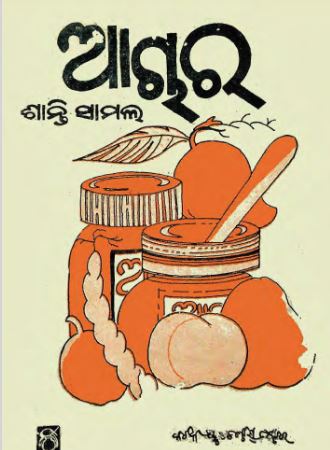Achara an esteemed Odia essay book by author Shanti Samal, was published in 1988 and has since established itself as a significant contribution to the literary landscape of Odisha. This collection of essays merges the author’s profound insights with intricate reflections on the cultural and culinary heritage of Odisha, particularly focusing on traditional food items such as pickles and papads. Samal’s writing elegantly brings forth the essence of Odia life, with a potent blend of personal anecdotes, historical context, and practical applications.
The title “Achara,” which translates to “pickle” in English, serves as a metaphor that encapsulates the essence of the book. Just as pickles add flavor and variety to meals, the essays enrich the reader’s understanding of Odia traditions and customs. Samal draws attention to the importance of pickles and papads not merely as culinary staples but as vital components of Odia culture and familial bonding. The process of making pickles, for instance, becomes an art form that intertwines generations, where recipes are passed down and each family’s version reflects its unique identity and history.
Samal’s writing style is characterized by its evocative imagery and a warm, conversational tone. In her essays, she dives deeply into the stories behind these foods—sharing vivid memories of her childhood, where the aromas of her mother’s kitchen filled the air, creating a tapestry of nostalgia and comfort. These personal reflections not only resonate with those familiar with Odia cuisine but also invite readers from all backgrounds to appreciate the significance of food in cultural identity.
The book covers various types of pickles—both spicy and sweet—as well as an array of papads that are integral to the Odia diet. Each essay intricately details the ingredients, preparation methods, and the cultural nuances surrounding these foods. Samal encourages readers to participate in the age-old traditions of food preservation, thereby connecting with their roots while also instilling a sense of pride in their culinary heritage.
“Achara” is not simply a food essay; it is a celebration of life itself within the Odia context. Through her exploration of food, Shanti Samal unveils broader themes surrounding family, memory, and community. The rituals associated with preparing and sharing food serve as a foundation for social bonds that are essential to the Odia way of life. The narratives within the book contend that food is more than sustenance; it is a means of expression, a tool for storytelling, and an essential part of spiritual and familial gatherings.
Published in 1988, “Achara” remains relevant today, urging contemporary readers to value their culinary traditions against the backdrop of a rapidly changing world. Shanti Samal’s work fosters an appreciation for preserving these practices, ensuring that future generations remain connected to their cultural roots.
In conclusion, “Achara” by Shanti Samal is a rich tapestry of essays that blend personal narrative with cultural exploration. It invites readers to taste, savor, and reflect on the vibrant traditions of Odisha, making it an essential read for anyone interested in the intersection of food, culture, and identity. Through this book, Samal not only captures the essence of Odia pickles and papads but also immortalizes the love, stories, and connections they facilitate in the tapestry of life.
Books Info
| Books name | Achara /ଆଚାର |
| Author | Santi Samal |
| No Of pages | 115 |
| Publisher | Cuttack Student’s Store |
| Publication | 1988 |
| Printed At | Kalika Printers |
| Distributor | NA |

